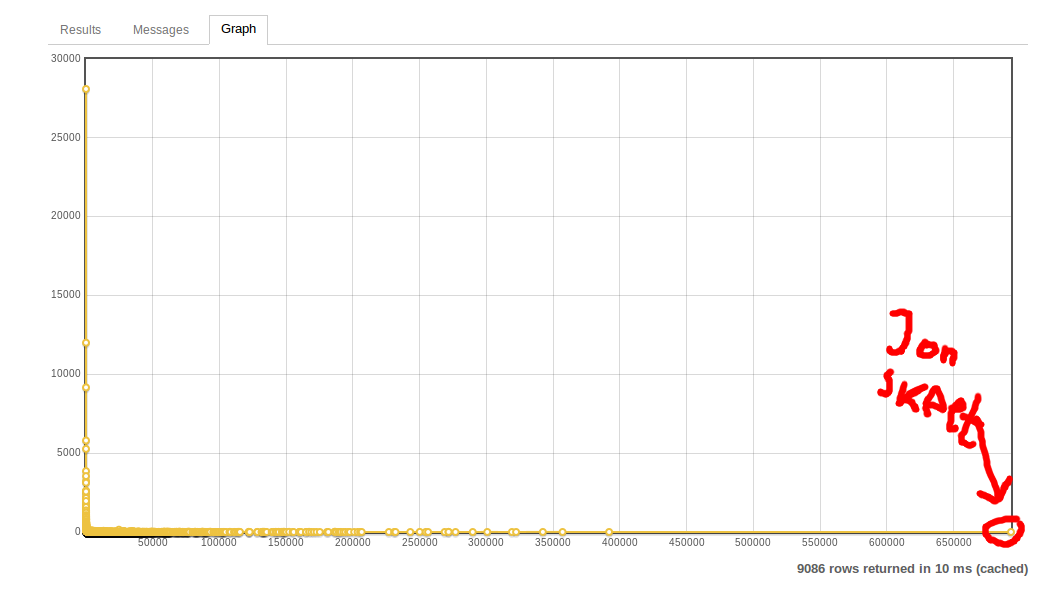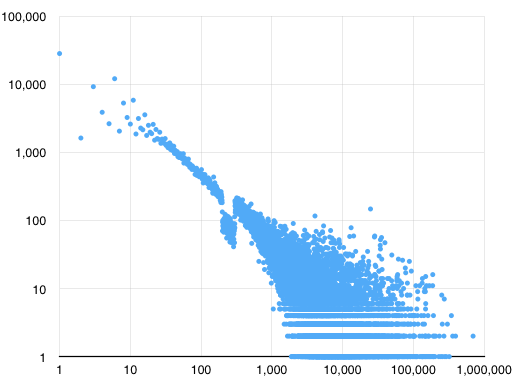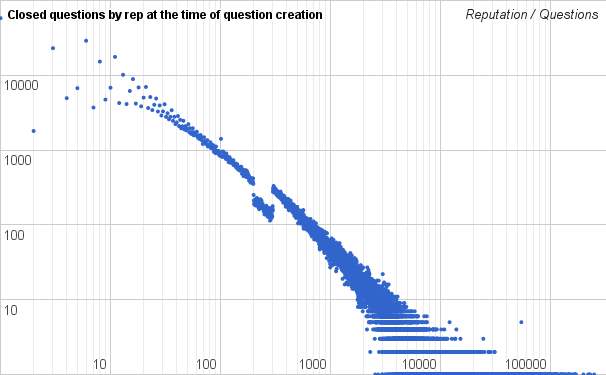Maybe.
I neither accept or reject your proposal, but I would like to point out that it does not really matter. The vast majority of bad questions are from people which do not really care about reputation points, most likely because they are not familiar with the concept on the site. They simply have a problem and want it to be fixed. That is also the reason why you see so many questions which are not fitting (way too broad, asking for examples, asking for tutorials, fixing code requests, ...) to the way SO works.
Whether we punish these users slightly more or not is most likely irrelevant, because rep is not their motivation. It is, however, important to give them some sort of feedback and this is the negative rep they get. The bright red notification clearly indicated you did something wrong - But if it says "-1", "-2" or "-100" does not mean much to a low-rep user.
The only case where there would be a difference is similar to yourself. A user with a bit experience on the site and a general understanding (lets say > 500) about how it works. Only these people care about reputation and might ask bad questions, and they would be affected by the increased penalty.
To prove my point, I tried to get the number of closed questions grouped by the reputation points:
 So as you can see, there is a gigantic spike at the 1-reputation point of the closed questions. For reference and labeling, I provided Jon Skeet as reference on the scale (I used all my paint skills!) on the far right of the x-axis. As mentioned above, the 1 reputation users do not care at all about how many negative reputation points they get.
So as you can see, there is a gigantic spike at the 1-reputation point of the closed questions. For reference and labeling, I provided Jon Skeet as reference on the scale (I used all my paint skills!) on the far right of the x-axis. As mentioned above, the 1 reputation users do not care at all about how many negative reputation points they get.
The same data visualized with a log log scale to make it actually much more useful and visible (thanks to @MichaelT for creating this graph).

Please be aware that the query and graph are not strictly corresponding of what I am arguing above. The reputation of the user is the current reputation, not of the time of asking the closed question. So most likely, a graph using the reputation points at the time of posting the question would even indicated more into the direction that most closed questions are asked by low-rep users.
Here's a similar plot using data on closed questions by rep level at the time the question was created (data is provided by @Shog9♦)

 So as you can see, there is a gigantic spike at the 1-reputation point of the closed questions. For reference and labeling, I provided Jon Skeet as reference on the scale (I used all my paint skills!) on the far right of the x-axis. As mentioned above, the 1 reputation users do not care at all about how many negative reputation points they get.
So as you can see, there is a gigantic spike at the 1-reputation point of the closed questions. For reference and labeling, I provided Jon Skeet as reference on the scale (I used all my paint skills!) on the far right of the x-axis. As mentioned above, the 1 reputation users do not care at all about how many negative reputation points they get.

-1the downvoter themselves loses.